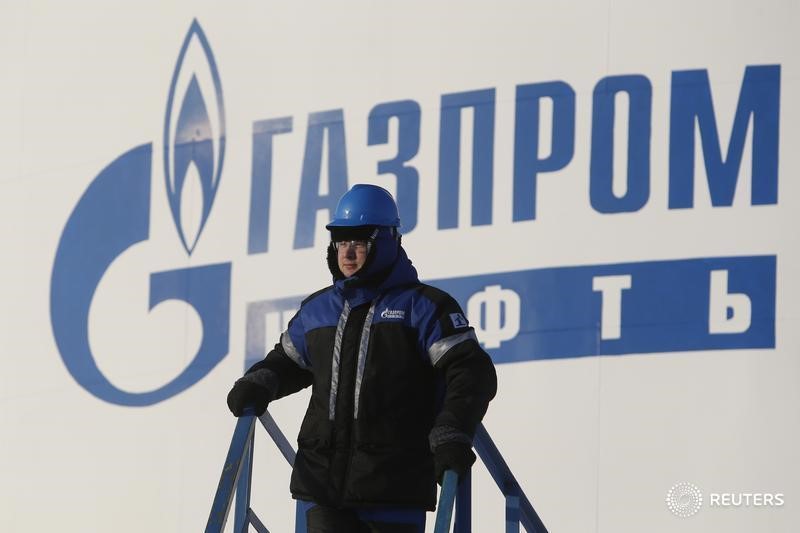(Bloomberg) -- Poland’s antitrust watchdog slapped a $7.6 billion fine on Gazprom PJSC (OTC:OGZPY) over the Nord Stream 2 pipeline, opening a new front in the bitter political battle over the natural gas project. Wednesday’s surprise move raises a whole set of legal questions about the plan, which is teetering on the brink.
What was the fine for?
The antitrust authority said Gazprom (MCX:GAZP) and its partners, which were ordered to pay about $61.3 million, failed to get its approval for a joint venture to finance the pipeline. Completing the project makes European gas customers more dependent on a single supplier, Gazprom, and may increase gas prices for Polish customers, the authority said. It also ordered the companies to terminate their financing agreements for the pipeline.
What happens next?
The Polish authority gave Gazprom and its partners 30 days days to “restore” competition or appeal the decision. While Gazprom owns the Baltic Sea pipeline project, half of its 9.5 billion-euro ($11.2 billion) cost is being financed by Engie SA, Royal Dutch Shell (LON:RDSa) Plc, Germany’s Uniper SE (OTC:UNPRF), Wintershall AG and Austria’s OMV AG.
Gazprom already said it will appeal and any ruling will most likely take at least five years, based on the current length of antitrust cases. Courts could decide to fast-track the procedure, if lawyers manage to convince them of the urgency of the case.
The dispute could move from the local tribunal in charge of competition matters all the way up to the Supreme Court, where it could get stuck for at least three years. A 2006 decision by the competition watchdog on an interchange-fee cartel is still being processed by Polish courts.
When will Gazprom have to pay up?
The fine will only have to be paid once the court of appeals issues a binding verdict. If Gazprom doesn’t pay, judges could order the seizure of assets.
Is there a risk of political interference?
Maybe. A series of controversial judicial reforms in Poland since 2015 has led to increased political influence over courts, putting the nation on the collision path with the European Commission and triggering a series of lawsuits at the EU’s courts that could threaten the nation’s access to the bloc’s funds. Some European courts have refused to hand suspects to Poland under European arrest warrant procedures amid concerns that their trial would not be fair.
While a given court and its rulings may not be politicized, the problem of the Polish judiciary has become systemic and politicians have excessive influence over courts, says the association of Polish judges Iustitia. This, in turn, strips them of confidence in the impartiality and independence of their rulings.
Does the fine and appeal put Nord Stream 2 on hold?
No. The Polish decision can’t block the entire pipeline project and its effects might remain purely of a financial nature for Gazprom, but it creates a further hurdle. According to analysts, Poland has no jurisdiction to halt the construction of the gas pipeline, which is almost complete, because the gas link doesn’t cross the nation’s territorial waters or its exclusive economic zone.
How unusual is the penalty?
Very. The Polish fine far-exceeds EU monopoly-abuse penalties for big tech firms like Google (NASDAQ:GOOGL) and is well above the fines that the EU or other national authorities have handed down for breaches of merger rules. The EU’s antitrust chief Margrethe Vestager pointedly told reporters this week that none of her fines since 2014 have hit the maximum level of 10% of a company’s yearly revenue. Altice NV was fined 124.5 million euros two years ago for moving forward on a takeover before it got EU permission.
Could it all end up in the EU courts?
Chances are slim. Poland’s antitrust office became involved in this case after Gazprom and its partners asked it and other EU regulators to approve the creation of Nord Stream 2. After Poland questioned the joint venture in 2016, the companies revoked the request and proceeded to get loan financing. The Polish regulator continued investigating, saying the move was an attempt to circumvent competition law. Because the decision is based on national law and issued solely by the Polish watchdog, without the involvement of the European Commission, the local courts will have the final say in the case.
A direct challenge against Poland’s decision at the EU’s courts in Luxembourg won’t be possible for the same reasons. But, since Poland is an EU member and is supposed to apply antitrust rules in line with the bloc’s laws, there is a slight possibility that a question about the scope of EU law comes up in the course of the Polish appeals.
If a Polish court decided it was unable to give an answer, it could refer a number of questions to the EU Court of Justice. Such questions would not go into the substance of the dispute and would be focused only on questions of law. The wrangling would also delay any final decision by another two years or so.
